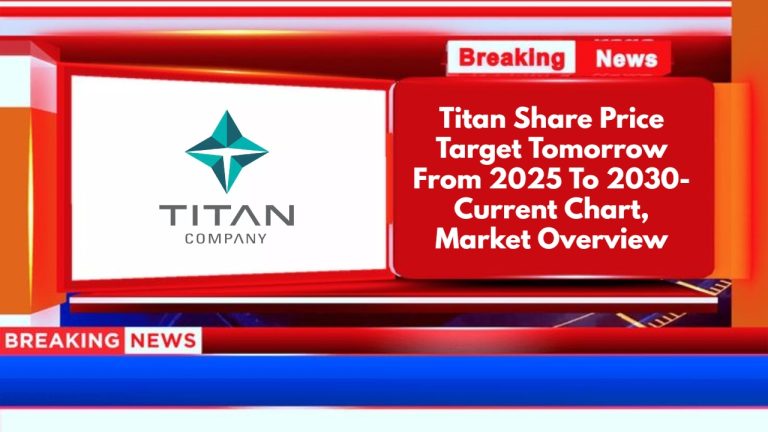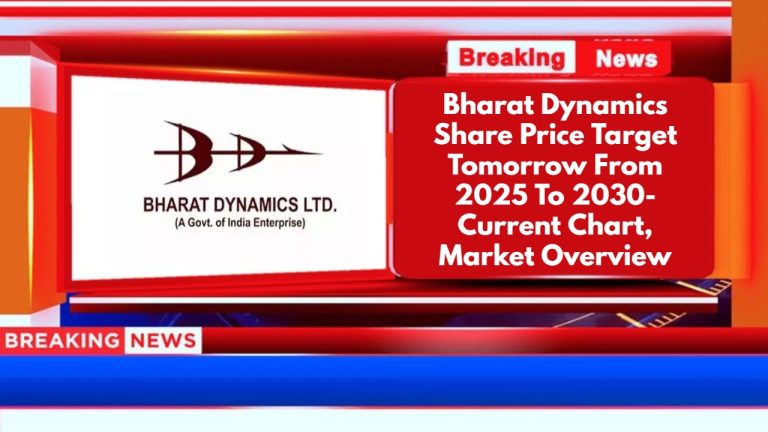Hyundai Motor Share Price Target Tomorrow From 2025 To 2030- Current Chart, Market Overview
Hyundai Motor is a trusted and popular car company known for its stylish design, strong performance, and modern technology. Over the years, it has won the hearts of millions of customers around the world, including in India. People are happy with Hyundai because it offers value for money, fuel-efficient cars, and good service support. Hyundai Motor Share Price on NSE as of 13 June 2025 is 1,98,000 KRW. This article will provide more details on Hyundai Motor Share Price Target 2025, 2026 to 2030.
Hyundai Motor Ltd: Company Info
- CEO: José Muñoz (1 Jan 2025–)
- Founded: 29 December 1967, Mugyo-dong, Seoul, South Korea
- Founder: Chung Ju-yung
- Headquarters: Seoul, South Korea
- Number of employees: 63,018 (2024)
- Parent organization: Hyundai Motor Group
- Revenue: 117.61 lakh crores KRW (2021).
Hyundai Motor Share Price Chart

Hyundai Motor Share: Market Overview
- Open: 1,99,400
- High: 1,99,800
- Low: 1,97,800
- Mkt cap: 50.19LCr
- P/E ratio: 4.18
- Div yield: 6.32%
- 52-wk high: 2,99,500
- 52-wk low: 1,75,800
Hyundai Motor Share Price Target Tomorrow From 2025 To 2030
Here are the estimated share prices of Hyundai Motor for the upcoming years, based solely on market valuation, enterprise trends and professional predictions.
- 2025 – ₹2,99,500
- 2026 – ₹3,30,000
- 2027 – ₹3,60,000
- 2028 – ₹3,90,000
- 2029 – ₹4,20,000
- 2030 – ₹4,50,000
Hyundai Motor Share Price Target 2025
Hyundai Motor share price target 2025 Expected target could be between ₹2,95,500 to ₹2,99,500.
Here are 7 key factors driving the growth of Hyundai Motor and its share price outlook through 2025, explained simply:
-
Aggressive EV & Hybrid Investment
Hyundai plans to invest heavily in electric and hybrid technologies, including over KRW 68 trillion (~$51 billion) between 2021–2024 for EV production, and aims to launch 21 EV models by 2030. -
Global EV Manufacturing Expansion
The new $7.6 billion “Metaplant” factory in Georgia (USA), alongside US battery production plans, enables Hyundai to grow global EV output (300–500k vehicles/year) and avoid tariffs. -
Diversified Powertrain Growth
Beyond EVs, Hyundai is expanding hybrid (x14 models by 2028), hydrogen fuel cell, and CNG vehicles—such as Hy‑CNG models gaining market share in India (~12.8%)—diversifying revenue streams . -
Advanced Platform & Tech Fundamentals
Cutting-edge platforms like E‑GMP and engine tech such as Smartstream CVVD improve vehicle performance, efficiency, and appeal. -
Smart Mobility & Software Strategy
Hyundai’s “Hyundai Way” includes developing software-defined vehicles, connected car systems, autonomous mobility services, and over-the-air upgrades, positioning it for future mobility trends. -
Strong Financials & Credit Rating
With an ‘A-grade’ credit rating, robust cash flows, and low leverage, Hyundai is well-equipped to fund its R&D and CAPEX (~KRW 61 trillion over 2020–2025). -
Tailwinds from EV Demand & Regulatory Support
The global shift toward electrification—with policy support like US tax credits and rising EV adoption—boosts Hyundai’s positioning in key markets.
Hyundai Motor Share Price Target 2030
Hyundai Motor share price target 2030 Expected target could be between ₹4,45,000 to ₹4,50,000.
Here are 7 key risks and challenges that could impact Hyundai Motor’s share price outlook by 2030, explained in simple language:
-
Slowing Adoption of All-Electric Vehicles (EVs)
Consumers are increasingly favoring hybrids and extended-range EVs over fully electric cars. Hyundai has responded by expanding its hybrid lineup, but if EV demand remains slow, reaching its 2 million‑unit EV sales target by 2030 may be challenging. -
Intensifying Global Competition
Hyundai faces fierce rivalry from both established automakers like Toyota, Volkswagen, Ford and new EV players like Tesla, BYD, NIO. Keeping ahead in technology, design, and pricing will require constant innovation. -
Supply Chain Vulnerabilities
Global shortages of semiconductors, rising raw material costs, and dependency on critical components such as rare earths and batteries expose Hyundai to production delays and rising expenses. -
Regulatory & Tariff Risks
Changing emissions regulations worldwide and possible auto tariffs—especially from the U.S.—could increase compliance costs or limit sales in key markets. -
Brand Image & Quality Challenges
Recalls due to defects, security vulnerabilities in older models, and lingering perceptions of quality issues—especially outside the premium space—could harm Hyundai’s reputation and customer trust. -
Cybersecurity Threats
As vehicles become more connected, Hyundai faces increased risks from cyberattacks and data breaches, which could hurt consumer confidence and lead to regulatory penalties. -
Economic & Currency Fluctuations
Hyundai earns over half of its revenue outside South Korea. Global economic downturns, rising inflation, or a stronger Korean Won can reduce demand, margins, and earnings growth.
Shareholding Pattern For Hyundai Motor Share
| Held By | Mar 2025 |
| Promoters | 82.5% |
| Flls | 7.17% |
| Dlls | 7.01% |
| Public | 3.32% |
Hyundai Motor Financials
| (KRW) | Mar 2025 | Y/Y change |
| Revenue | 175.23T | 7.73% |
| Operating expense | 21.51T | 17.17% |
| Net income | 12.53T | 4.72% |
| Net profit margin | 7.15 | -2.72% |
| Earnings per share | 47.62K | 4.18% |
| EBITDA | 17.39T | -4.38% |
| Effective tax rate | 23.80% | — |
Read Also:- Bajaj Housing Finance Share Price Target Tomorrow From 2025 To 2030- Market Overview, Current Chart







